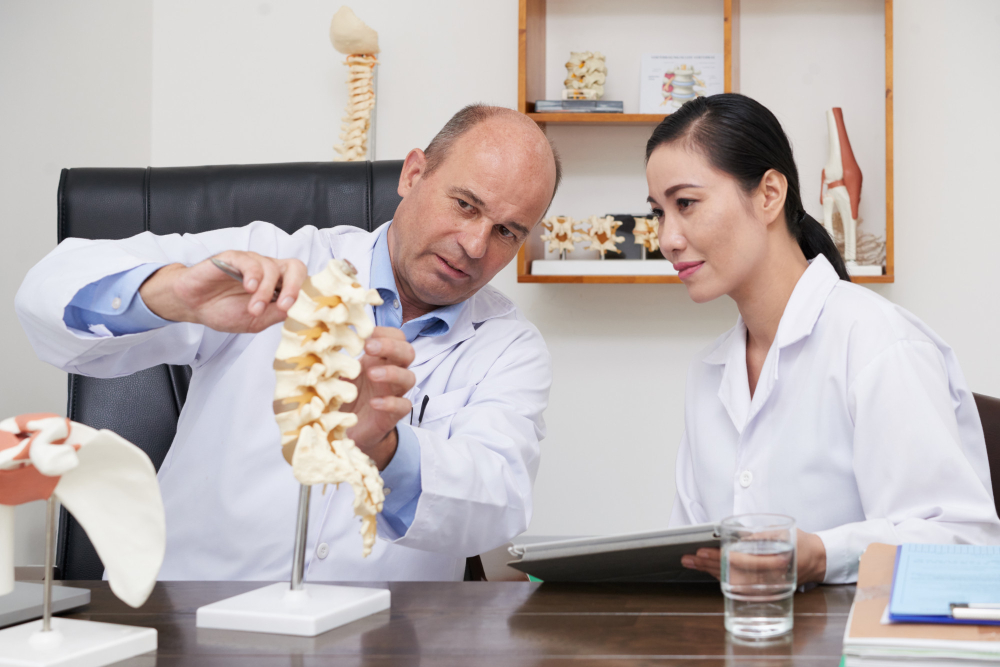
Spinal stenosis is a condition that affects thousands of individuals, causing pain, discomfort, and in some cases, a significant impact on quality of life. If you're experiencing symptoms like numbness, weakness, or persistent back pain, you might be wondering how to find relief. This blog explores effective ways to treat spinal stenosis, including non-invasive therapies and advanced surgical options. By the end of this post, you'll have a better understanding of available treatments and where to turn for expert care. If you're seeking an orthopedic surgeon in Debary, FL, read on to discover how Central Florida Bone & Joint Institute can help.
What is Spinal Stenosis?
Spinal stenosis occurs when the spaces within your spine narrow, putting pressure on the nerves that travel through it. This condition most commonly impacts the lower back and neck. It is often caused by wear-and-tear changes in the spine associated with aging, though factors such as genetic predisposition, herniated disks, or injuries can accelerate its onset.
Common Symptoms of Spinal Stenosis
- Persistent back and neck pain
- Numbness or tingling in the arms, legs, or hands
- Weakness in limbs
- Difficulty walking or maintaining balance
- Sciatica (sharp pain running down one leg)
Early diagnosis is crucial to managing these symptoms effectively and preventing complications. If you're experiencing any of these signs, reaching out to a healthcare professional is a vital first step.
Non-Surgical Treatments for Spinal Stenosis
While surgical intervention may be necessary for severe cases, many individuals experience relief through non-surgical treatments. These options focus on reducing pain, inflammation, and nerve compression to restore mobility and improve quality of life.
1. Physical Therapy
A tailored physical therapy program is often the first step in managing spinal stenosis. A licensed therapist will guide you through exercises designed to:
- Strengthen muscles that support the spine
- Improve flexibility and range of motion
- Reduce pressure on affected nerves
For example, stretches targeting the hamstrings and lower back can alleviate sciatic pain associated with lumbar spinal stenosis.
2. Medications
Over-the-counter or prescription medications can help manage symptoms. These include:
- Anti-inflammatory drugs (NSAIDs) such as ibuprofen to reduce swelling
- Muscle relaxants to relieve spasms
- Corticosteroid injections to target severe nerve inflammation and pain
These treatments are often temporary solutions, but they can offer significant short-term relief.
3. Lifestyle Modifications
Small changes to your daily routine can have a big impact on spinal health:
- Practice good posture to minimize strain on your spine
- Use ergonomic furniture at work and home
- Engage in low-impact activities such as swimming or yoga
- Maintain a healthy weight to reduce stress on your lumbar spine
4. Chiropractic Care
For some patients, chiropractic adjustments can offer relief from mild to moderate spinal stenosis symptoms. These involve manual manipulation of the spine to restore alignment, decrease nerve pressure, and improve circulation.
Advanced Treatment Options for Spinal Stenosis
When non-invasive methods aren’t enough to manage symptoms, advanced treatments are available. These range from minimally invasive procedures to more comprehensive surgical solutions.
1. Epidural Steroid Injections
For patients experiencing severe nerve pain, especially in the lower back or legs, an epidural steroid injection may provide relief. This procedure delivers anti-inflammatory medication directly into the epidural space around the spine, reducing swelling and nerve irritation.
2. Spinal Decompression Therapy
This non-surgical treatment involves gently stretching the spine to relieve pressure on compressed nerves. Spinal decompression therapy can alleviate pain and improve functionality in certain cases of lumbar stenosis.
3. Surgical Treatment Options
When symptoms begin to interfere significantly with daily activities, it’s time to consider surgical intervention. An orthopedic surgeon in Debary, FL can help guide you through this process.
Laminectomy
This procedure involves removing part of the vertebrae (lamina) to enlarge the spinal canal and relieve nerve compression. It is one of the most common surgeries for treating spinal stenosis.
Spinal Fusion
If instability in the spine contributes to your symptoms, spinal fusion may be recommended. This technique permanently connects two or more vertebrae, reducing movement in that section of your spine and alleviating pain.
Minimally Invasive Spine Surgery
Advances in technology have made it possible to perform some spinal surgeries with smaller incisions and less downtime. Minimally invasive spine surgery is often an appealing option due to its shorter recovery time and reduced risk of complications.
Why Timely Treatment Matters
Ignoring spinal stenosis symptoms can lead to permanent nerve damage or loss of function in severe cases. Seeking timely treatment not only brings relief but also reduces the risk of long-term complications. Whether you’re just starting to notice symptoms or have been coping with them for years, now is the time to take action.
Choose an Orthopedic Surgeon in Debary, FL
Living with spinal stenosis doesn’t have to mean living in discomfort. When you're ready to explore your treatment options, trust the experts at Central Florida Bone & Joint Institute. Our team of experienced professionals combines compassionate care with cutting-edge technology to deliver the best possible outcomes.
Why Choose Us?
- Board-certified orthopedic surgeons with years of experience
- Advanced diagnostic tools and minimally invasive surgical options
- Personalized treatment plans tailored to your needs
- A commitment to supporting your long-term health and recovery
Take the first step toward relief today. If you're looking for an orthopedic surgeon in Debary, FL, contact Central Florida Bone & Joint Institute to learn more about spinal stenosis treatments. Together, we’ll find the solution that works best for you. Don’t wait to regain your mobility and quality of life.